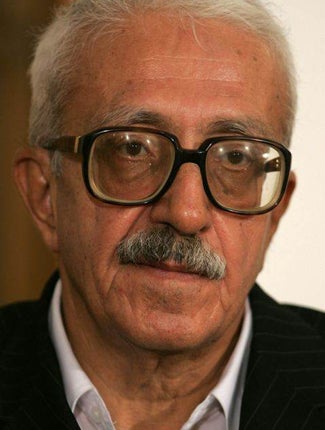Iraqi President bars execution of Tariq Aziz

Iraq's president, Jalal Talabani, is refusing to sign the execution order for Tariq Aziz, 74, the prominent former member of Saddam Hussein's inner circle who was sentenced to death.
Aziz, who is reported to be seriously ill, is already serving a 22-year prison sentence over charges that he authorised the execution of businessmen accused of profiteering in the black market and for his role in the forced displacement of Kurds. The former deputy prime minister has 30 days to lodge an appeal against his sentence of death by hanging for his part in the suppression of Shia opponents of the regime, imposed two days after being handed over to Iraqi officials by the Americans.
Aziz was the highest ranking Christian in Iraq's power elite and often portrayed as the public face of Ba'athist rule. The country's Christian community has faced repeated attacks since the US-led invasion of 2003 and many have fled abroad.
Speaking in Paris, Mr Talabani said: "I cannot sign an order of this kind because I am a socialist. I feel compassion for Tariq Aziz because he is a Christian; an Iraqi Christian. In addition, he is an elderly man – aged over 70 – and this is why I will never sign this order."
The Iraqi Prime Minister, Nouri al-Maliki, was one of the leaders of the Shia opposition Aziz is accused of persecuting and the refusal by Mr Talabani, who is a Kurdish Sunni, to sign the death sentence is likely to lead to Shia protests. Officials in Baghdad said discussions "will have to be held at the highest level". Tariq Harb, a leading Iraqi constitutional lawyer, said: "We do not see how this execution can be carried out legally without the President's signature. According to the Iraqi constitution the President has the power to ratify death sentences before they are carried out and they cannot be carried out without his approval."
Saddam Hussein was hanged in 2006 despite the fact that Mr Talabani's signature was not on the execution order. But the Iraqi government has been attempting to stick to the tenets of the constitution since then and going through with Aziz's death sentence against the wishes of the head of state would be more of a problem. Such a decision will also have a damaging effect, say analysts, at a politically fragile time that saw a long impasse in forming a government after elections in March.
The EU, the Vatican and Russia have urged the Iraqi government not to proceed with Aziz's execution. Bernard Valero, a French foreign ministry spokesman, said his government was "delighted" by the stance Mr Talabani is taking. The US did not join in the call for clemency for Aziz although some senior officials in the Obama administration are thought to believe that hanging him would needlessly antagonise sections of the community, when he is unlikely ever to be freed.
Aziz had claimed that he tried to dissuade Saddam from the invasion of Kuwait in 1990, which led to a humiliating defeat in the first Gulf War.
Although a long-standing member of the Ba'ath party's higher echelon, Aziz was not regarded as one of the more brutal members of the regime.
Subscribe to Independent Premium to bookmark this article
Want to bookmark your favourite articles and stories to read or reference later? Start your Independent Premium subscription today.

Join our commenting forum
Join thought-provoking conversations, follow other Independent readers and see their replies